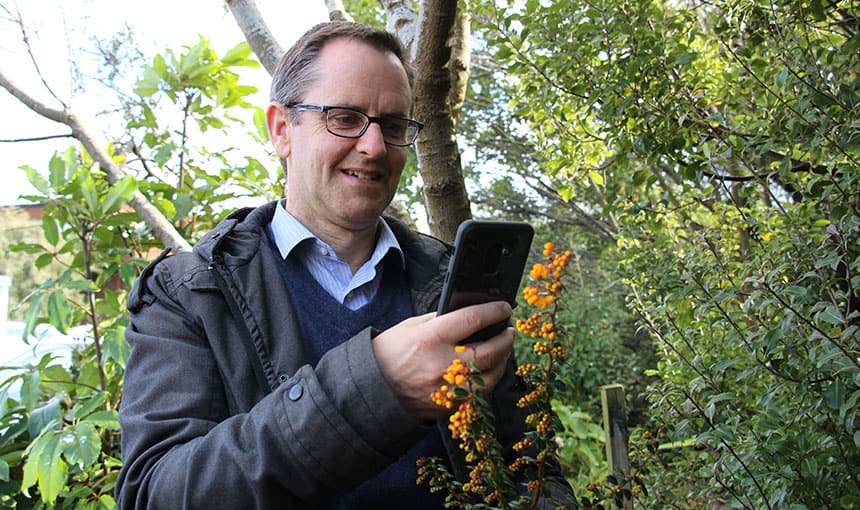The regional council is an official champion of the app that’s being developed with funding from Envirolink as part of a larger BioHeritage Challenge project led by Scion‘s Dr Steve Pawson.
“Users of the app will be able to quickly report potential pests – such as weeds, insects and diseases – simply by taking a photo of the suspect on their mobile phone,” Steve says.
“The alert goes through in real-time, so if you see something strange – something you haven’t seen before or are suspicious of – the right people get a heads-up straight away and can do something about it.”
As champion, Environment Southland will ensure its development stays on track, play a crucial role in testing and provide regular updates to the project’s sponsor – the Biosecurity Working Group.
Environment Southland wanted to get involved in development of the app because it can see the potential use in Southland where pests are a major problem to land managers and the conservation estate – as they are in other regions.
“The phone app is a great way to get more eyes looking for pests,” Environment Southland Senior Biosecurity Officer Randall Milne says.
“It’ll make it easy for all New Zealanders to participate in biosecurity and be on the alert for problem pests before they can spread. We’re excited about test driving it soon with case studies – particularly in some of our biodiversity rich areas where pests can have a significant impact.”
The app can be tailored for individual regions and sectors, enabling councils and other organisations to set up alerts from users who report specific problem pests.
Software development is due to start this month thanks to recent investment from Biosecurity New Zealand. This reflects their commitment to further enabling all New Zealanders to participate in protecting the environment and primary production systems, with mobile phone-based reporting tools being another potential way of achieving this. The app has also received funding from the New Zealand Forest Owners Association’s Forest Biosecurity Committee.
The prototype will be trialled in three case studies from early 2019, with the app expected to be ready for broader release by the middle of next year.
“Ultimately, we want all regional councils to use and promote the app amongst their staff and communities to report pests in their local areas,” Steve says.
If Aotearoa is to effectively manage invasions by pests, weeds and diseases, it needs to be easy for every New Zealander to play their part, Steve says.
“It’s this collective approach by all New Zealanders that will help to minimise biosecurity risks to our precious environments.
“In line with BioHeritage’s commitment to mātauranga Māori (Māori knowledge), the app is being co-developed with iwi partners Te Tira Whakamātaki (the Māori Biosecurity Network) and Wakatū Inc. This holistic approach will ensure the app blends mātauranga Māori with western science.
This project contributes toward BioHeritage’s goal of future-proofing New Zealand’s biosecurity system from threats posed by weeds, pests, plant pathogens and other drivers of global environmental change.
It builds on Steve’s earlier work developing the Myrtle Rust Reporter mobile app that detects hosts of the fungal disease myrtle rust.
